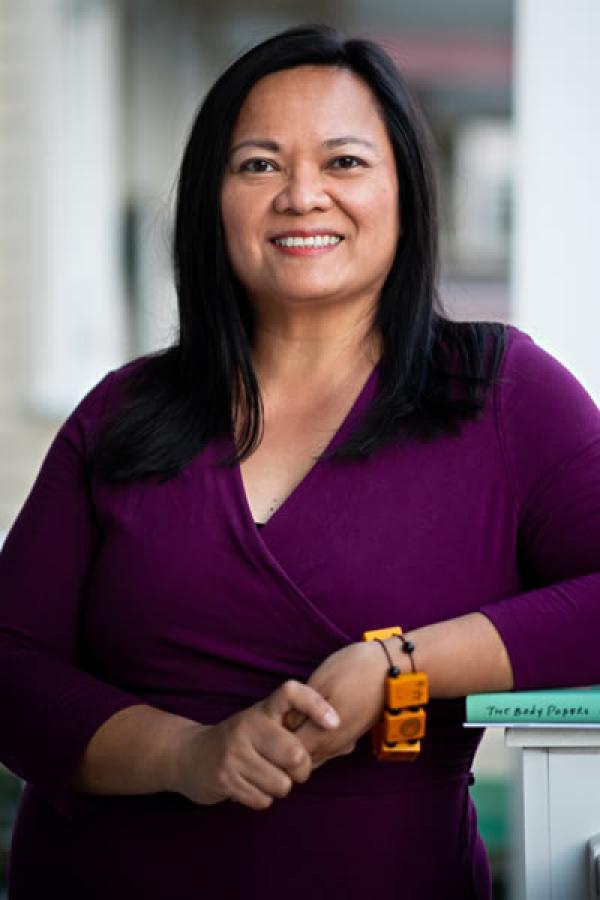Grace Talusan

Photo by Alonso Nichols
Bio
Grace Talusan is the author of memoir The Body Papers (Restless Books), which was the winner in nonfiction for the 2020 Massachusetts Book Awards and the Restless Books Prize for New Immigrant Writing. Her short story, “The Book of Life and Death” was the Boston Book Festival’s One City One Story pick in 2020 and was translated into several languages, including Filipino. She holds degrees from Tufts University and the MFA Program in Writing at University of California Irvine. She has received grants and fellowships from the U.S. Fulbright Scholar Program, the Massachusetts Cultural Council, the Brother Thomas Fund, and others. Talusan teaches creative writing at Brandeis University as the Fannie Hurst Writer-in-Residence. She lives outside of Boston with her husband, photographer Alonso Nichols.
As a formerly undocumented immigrant from the Philippines, as an adult survivor of child sexual abuse, and as a woman of color who rarely saw herself in books and other media, I spent many years uncertain if my writing would find readers. But I persisted, continuing to write and applying for opportunities such as the National Endowment for the Arts Fellowship in Creative Writing, an early rite of spring every two years.
When I returned the call with the Washington, DC area code, I was a little anxious, a response I picked up from my immigrant parents who always seemed nervous around the government. I was not prepared for the unexpected good news and protested at first. “But I was going to apply for the rest of my life.” The kind caller paused and cheerily said, “Not anymore. Today is your day.”
The recognition from the panelists, the material support of the grant, and the honor of joining a prestigious legacy of NEA fellows encourages me profoundly at a crucial time in my life as a writer. This prestigious award gives me hope that I can write the books that I’ve always dreamed of putting into the world.
I remembered another experience with the federal government many years ago during my naturalization ceremony. As I recited the oath and became a U.S. citizen, I was surprised at how moved I was; my relationship to this country shifted in a fundamental way. Being awarded the NEA Fellowship has transformed another part of me. As a writer, I feel welcomed; as if I belong.

